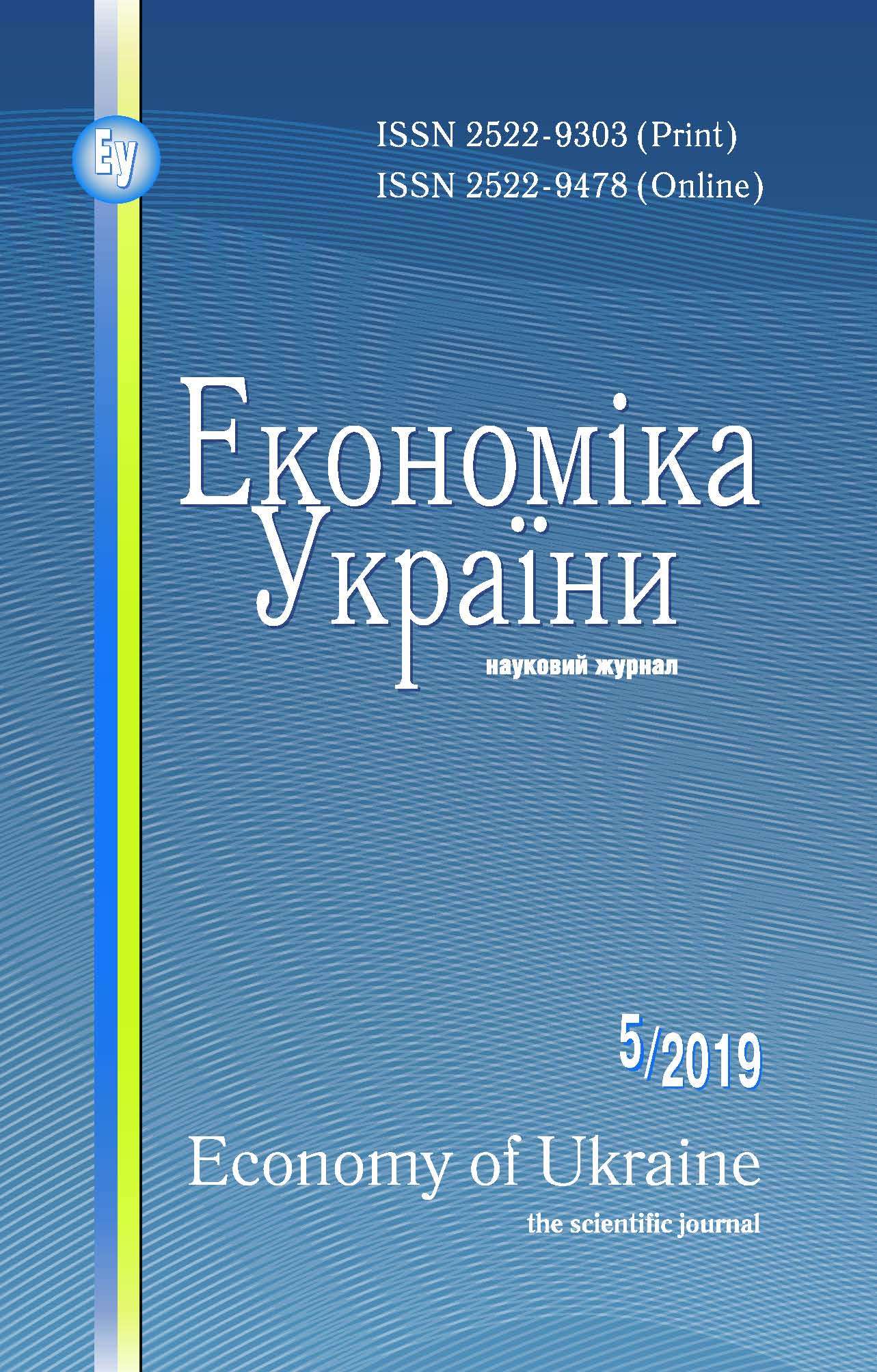CALCULATION PROCEDURE FOR OBTAINING THE QUOTA AFTER THE IMF REFORM: CHANGES IN SINGLE PACKAGE
DOI:
https://doi.org/10.15407/economyukr.2019.05.028Keywords:
IMF; quotas; countries’ positions; G20Abstract
The International Monetary Fund (IMF) keeps plans to complete the review of country quotas in 2019. The country’s quota in the IMF determines the amount of its financial obligations to the Fund; the number of votes in the Fund and the country’s access to financing depend on this quota. Lastly, these shares were redistributed in 2010 under the 14th revision of quotas, when IMF total capital was increased by 100%, and only 6% of the quotas were transferred to developing countries. However, the total share of developing countries in the Fund is only 42.5%; the remaining 57.5% belong to developed countries. The G20 has previously approved a roadmap according to which the quotas for IMF shareholder countries should be redistributed by the new formula until 2019. Countries with emerging economies should gain more weight in this institution, created to maintain the financial stability of its participants, while traditional shareholders should lose some of their share. However, earlier this formula could not be agreed because of the US counteraction. Indeed, currently, the allowable ratio of debt to GDP is revised upward in most countries, with these changes most noticeable in countries with emerging markets. It is expected that for such countries, the debt index may exceed the level observed at the beginning of the global financial crisis of 2008-2009. The developed countries with a debt burden exceeding 100% of GDP remain vulnerable as well. As a result, the probability of long-term preservation of low GDP growth rates increases. At one time, Cooper’s group refused to use the debt index, believing that it could cause certain “moral problems”: the states would be interested in debt build-up to increase their quota in the IMF.
References
Prokof'ev I.V., Karataev S.V., Troshin N.N., Abaev L.Ch. O vzglyadakh ekspertov BRIKS na reformirovanie Mezhdunarodnogo valyutnogo fonda [On the views of BRICS experts on the reform of the International Monetary Fund], available at: riss.ru/bookstore/monographs/report-2/ [in Russian].
Bradlow D.D. The governance of the IMF: the need for comprehensive reform, available at: www.g24.org/wp-content/uploads/2016/01/The-Governance-of-the-IMF-The-Need-for-Comprehensive.pdf.
Buira A. The governance of the IMF in a global economy, available at: g24.org/wp-content/uploads/2016/01/The-Governance-of-the-IMF-in-a-Global-Economy.pdf.
Christine Lagarde for breathing space before next round of IMF reforms, available at: economictimes.indiatimes.com/news/economy/policy/christine-lagarde-for-breathing-space-before-next-round-of-imf-reforms/articleshow/51381704.cms.
Cooper R.N., Truman E.M. The IMF quota formula: linchpin of Fund reform, available at: piie.com/publications/pb/pb07-1.pdf.
Enevoldsen T. IMF quotas, Danmarks Nationalbank: Monetary Review, 4th Quarter 2000, available at: www.nationalbanken.dk/en/publications/Documents/2000/12/kvo4_00uk.pdf.
Gade T.P., M.-Thagaard Sune, Thomsen С.R. Voice and representation in the IMF, Danmarks Nationalbank: Monetary Review, 2nd Quarter 2015, available at: www.nationalbanken.dk/en/publications/Documents/2015/06/Monetary%20Review%202nd%20Quarter%202015.pdf.
Kruger M., Lavigne R., McKay J. The role of the International Monetary Fund in the post-crisis world, Bank of Canada: Staff Discussion Paper, February 2016, available at: www.bankofcanada.ca/wp-content/uploads/2016/02/sdp2016-6.pdf.
Vestergaard J., Wade R.H. Establishing a new Global Economic Council: governance reform at the G20, the IMF and the World Bank, Global Policy, 2012, Vol. 3, Iss. 3, pp. 257-269.
doi.org/10.1111/j.1758-5899.2012.00169.x
Skala M., Thimann Ch., Wölfinger R. The search for Columbus' egg: finding a new formula to determine quotas at the IMF. ECB. Occasional paper series, No. 70, August 2007, available at: www.ecb.europa.eu/pub/pdf/scpops/ecbocp70.pdf? d894b1e7e8982-295381a1a64cdd 5f270 .
Downloads
Published
How to Cite
Issue
Section
License
Copyright (c) 2024 Economy of Ukraine

This work is licensed under a Creative Commons Attribution-NonCommercial-NoDerivatives 4.0 International License.



